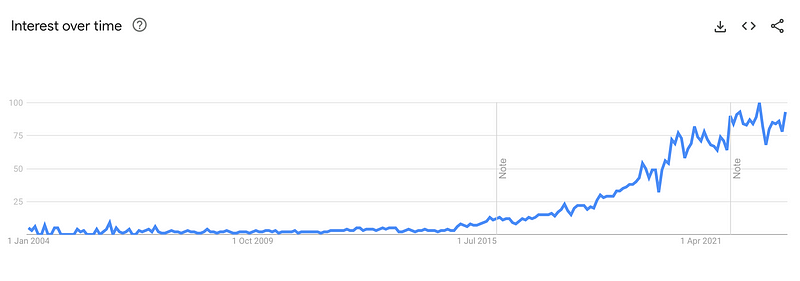Navigating Imposter Syndrome: A Student's Journey and Strategies
Written on
Chapter 1: The University Experience
Leaving high school, I felt like I had the world at my fingertips. I was an ambitious, high-achieving 18-year-old, eagerly preparing for my next big adventure: university.
Neither of my parents attended university, so pursuing higher education was never an obligation for me, but it was an expectation that lingered in the background. Given my academic success and involvement in extracurricular activities, it felt like the next logical step. I wasn’t sure of my career path, which made the idea of spending four years exploring my options while enjoying newfound freedoms all the more appealing.
I enrolled in a dual honors program studying English Literature and German at the University of Warwick—essentially a classic “I’m unsure of my future” degree. As I counted down the days to move into my student accommodation, excitement bubbled within me.
Upon arrival, my parents helped me settle in, and I was filled with anticipation for what lay ahead.
An Unexpected Reality Check
I quickly adjusted to university life, forming friendships with peers who shared similar interests, engaging in new sports, and enjoying the social scene typical of a first-year student. Relishing the independence of living away from home, I felt liberated.
However, something shifted within me. The academic atmosphere was a daunting new territory, starkly different from anything I had previously encountered. I distinctly remember a seminar where we analyzed Homer’s The Iliad. Though I was familiar with the story, I felt overwhelmed, as if I could barely grasp its profound layers, while my classmates seemed to effortlessly navigate the complexities.
How could they articulate their thoughts so clearly? What background did they come from that enabled such extensive literary knowledge? In high school, I was always eager to contribute; here, though, my hands felt glued to the desk, my voice stifled by anxiety.

Photo by Felicia Buitenwerf on Unsplash
I increasingly felt like an outsider in this new environment, terrified to voice my opinions for fear of being ridiculed and exposed as a fraud. In retrospect, I realize this mindset was misguided; in the realm of the arts, one can argue various perspectives as long as they do so with conviction.
Unbeknownst to me, I was experiencing the onset of imposter syndrome.
Understanding Imposter Syndrome
This term might sound familiar. In fact, it’s likely you’ve encountered it at some point in your life.

Photo by Sander Sammy on Unsplash
Imposter syndrome refers to a psychological phenomenon marked by ongoing doubt in one's abilities and a fear of being unmasked as a ‘fraud.’ This is particularly common among high achievers who struggle to internalize their accomplishments, often attributing their success to luck or timing rather than their own skills and efforts.
Today, imposter syndrome is a widely recognized issue, with numerous resources available to help individuals identify its signs and develop coping mechanisms. However, back in 2010, when I first began to feel its effects, the topic was scarcely discussed, and I was oblivious to how significantly it was impacting my life.

(Source: Google Trends search for the term “Imposter Syndrome since 1 Jan 2004)
Throughout my four years at university, imposter syndrome lingered, despite the positive feedback from my professors that contradicted my self-doubt. Each essay and exam brought a wave of anxiety, waiting for the moment I would be exposed as an imposter. Yet, that moment never arrived. When I received praise for my work, I dismissed it as mere luck.

Photo by Vasily Koloda on Unsplash
I graduated with the highest honors, which brought me temporary relief from my feelings of inadequacy. However, as I transitioned into the workforce, those familiar feelings quickly resurfaced.
Chapter 2: Living with Imposter Syndrome
Almost ten years have passed since I graduated, and I continue to battle imposter syndrome in various aspects of my life—even in my writing endeavors. After years of therapy, I am starting to understand the origins of my imposter syndrome and its prevalence today. I am learning to acknowledge and coexist with the symptoms—both physical and mental—rather than suppress them.
If you are also grappling with imposter syndrome, here are a few strategies that have proven helpful for me:
- The Bigger Picture: When you feel like a fraud, remind yourself of your achievements and the effort you’ve invested to reach your current position. You didn’t just get here by chance; it’s a testament to your skills and determination.
- Open Up: Share your doubts and vulnerabilities with others. Realizing that imposter syndrome is a common experience can help normalize your feelings and lessen their negative impact.
- Practice Self-Compassion: When things go awry, it's easy to fall into self-criticism and believe your imposter syndrome was justified. Be kind to yourself; recognize that everyone makes mistakes and has areas for improvement—this is simply part of being human.
- Use It as Motivation: Instead of viewing imposter syndrome as a limitation, see it as a signal that you are stepping outside your comfort zone. It’s an opportunity for growth, not a sign of weakness.
- Fake It ‘Til You Make It: Many of us have heard this phrase, yet few truly embrace it. One of the key lessons I’ve learned in the workplace is that many people aren’t fully prepared for their roles when they begin, but they learn and adapt over time. Life doesn’t offer a dress rehearsal; we must step onto the stage and improvise until we find our rhythm.

Photo by Sean Quillen on Unsplash
It’s crucial to acknowledge that everyone’s journey with imposter syndrome is distinct and personal. The methods that have worked for me may not resonate with you, but I hope these insights provide a helpful starting point.
If you’ve faced imposter syndrome and developed your own strategies for coping, I’d love to hear your stories in the comments!
Have you found value in my content on Medium? For just $5 a month, you can gain unlimited access to more thought-provoking articles while supporting me and other talented writers on this platform. It’s a win-win!
The first video title is: What Is Imposter Syndrome And How Can University Students Overcome It? | ep 2. This video explores the concept of imposter syndrome in a university context and offers insights into overcoming these feelings.
The second video title is: PhD imposter syndrome | 5 surprising no-nonsense solutions! This video presents practical solutions for overcoming imposter syndrome specific to PhD students.